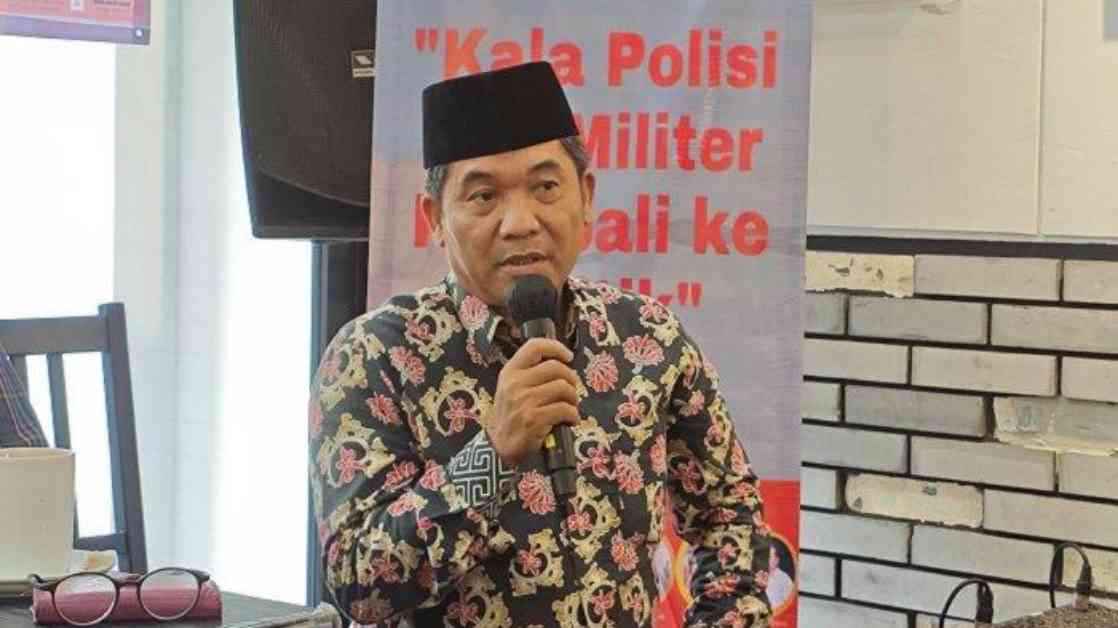President Prabowo Subianto’s decision to replace Minister of Higher Education, Science, and Technology Satryo Soemantri Brodjonegoro with Brian Yuliarto has sparked controversy and raised questions about whether this reshuffle is the right move. The Director of Lingkar Madani, Ray Rangkuti, believes that this decision may not necessarily be a decisive step.
Ray noted that the new minister, Brian Yuliarto, is a true professional without any political party affiliations, mass base, or organizational leadership background. Therefore, the ease with which he was appointed could be seen as a political move rather than a bold decision.
In a recent talk show on Overview Tribunnews, Ray expressed that it would be truly remarkable if President Prabowo were to remove the National Police Chief, General Listyo Sigit Prabowo. This would be a more significant and challenging decision compared to replacing the Minister of Higher Education.
According to Ray, there are three main reasons why Satryo was replaced. Firstly, there were conflicts between Satryo and the staff at the Ministry of Higher Education, Science, and Technology in recent times. Secondly, there were concerns about the lack of efforts made by Satryo to address student movements within the first 100 days of his tenure. Lastly, Ray pointed out that Satryo’s views on education being a tool for liberation clashed with President Prabowo’s military background, which emphasizes a more structured and command-oriented approach.
Prior to Brian Yuliarto’s inauguration as the new Minister of Higher Education, Science, and Technology on Wednesday, February 19, 2025, Satryo admitted to submitting his resignation letter to the Minister of State Secretariat, Prasetyo Hadi, on Tuesday, February 18, 2025, at midnight.
The decision to replace Satryo with Brian Yuliarto has raised concerns and sparked debates within political circles. Many are questioning the motivations behind this move and whether it aligns with the government’s goals for the education sector in the country. As the situation unfolds, it remains to be seen how this reshuffle will impact the higher education landscape and the overall direction of the Ministry of Higher Education, Science, and Technology.
Expert Analysis: Evaluating the Implications
Expert analysts in the field of political science and governance have weighed in on the recent reshuffle within the Ministry of Higher Education, Science, and Technology. According to Dr. Amanda Tan, a renowned political scientist, such changes in key positions can have far-reaching consequences on policy implementation and institutional stability.
Dr. Tan emphasized the importance of maintaining continuity and coherence within government agencies to ensure effective governance and long-term planning. She highlighted that abrupt changes, especially in crucial sectors like education and technology, could disrupt ongoing initiatives and lead to uncertainty among stakeholders.
It is crucial for policymakers to consider the broader implications of these decisions and strive for transparency and accountability in their leadership choices. Dr. Tan also underscored the need for comprehensive evaluations of ministerial performances to guide future appointments and foster a culture of meritocracy and excellence in public service.
Public Response: Voices from the Community
The public response to President Prabowo’s reshuffle has been mixed, with various stakeholders expressing divergent views on the matter. Social media platforms and online forums have been abuzz with discussions about the implications of these changes and the potential impact on educational policies and programs.
Some citizens have voiced support for the President’s decision, citing the need for fresh perspectives and leadership in the education sector. They believe that new leadership could bring innovative ideas and strategies to address longstanding challenges and improve the quality of education in the country.
However, others have raised concerns about the sudden nature of these appointments and the lack of clarity regarding the government’s vision for higher education and technology development. Many are calling for greater transparency and dialogue between policymakers and the public to ensure that decisions are made in the best interests of the nation and its citizens.
As the debate continues and more information emerges about the reasons behind these changes, it is essential for all stakeholders to engage in constructive dialogue and collaborative efforts to shape a brighter future for education and technology in Indonesia. The coming days will reveal the true impact of these decisions and the direction in which the Ministry of Higher Education, Science, and Technology is headed.






















